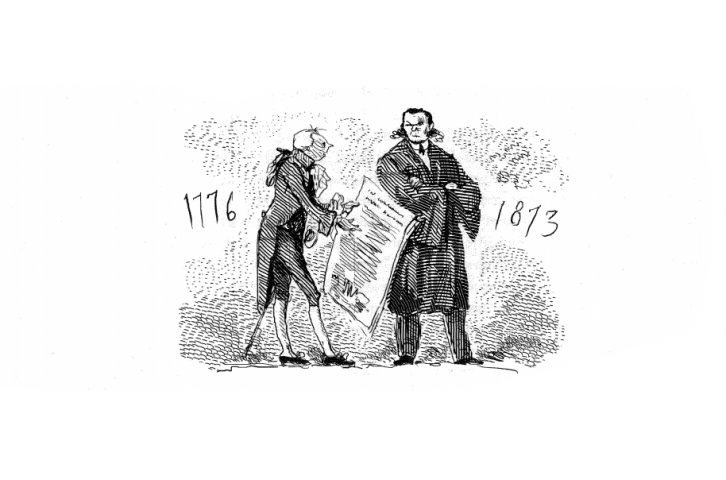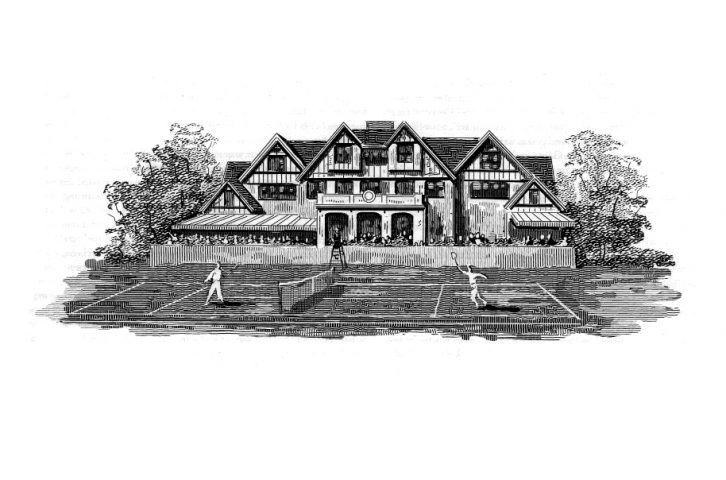Books Reviewed
The End of Blackness is, in many ways, a schizophrenic book. Debra Dickerson riled many on the black Left with her 2000 memoir An American Story, in which she dissociated herself from the black leftist orthodoxy despite distrusting the conservative establishment as well. She continues splitting the difference in her new book.
She condemns black leaders who neglect to instill pride in their flock in favor of the emotional score of excoriating whites. But black leftists inclined to dismiss Dickerson as one more “sell-out” would be pleasantly surprised by much in this book, inasmuch as Dickerson devotes its first half to a bitter portrait of whites ripe with passages sure to get heads nodding among the victimology crowd.
Yet the heart of Dickerson’s argument is a penetrating analysis of what looks peculiar to outside observers about modern black America. Why do legions of blacks, succeeding in an America whose openness to our achievement would have seemed a fantasy to our ancestors, insist that their lives are still dominated by an ever-present “racism”?
Dickerson understands that the heart of this is insecurity. Truly oppressed people cannot afford to wallow in and exaggerate their plight. But for people who are doing pretty well but left by history without an organic sense of pride and place, fashioning one’s self as eternally abused by an evil force becomes, ironically, an uplifting substitute for true self-regard. “These blacks simply do not know how to step into the limitless, frightening future they worked so hard to bring about,” Dickerson notes, “where you have no one to blame for your failures but you.”
As a result, “without their oppression they are no one special,” such that they come to feel that “the only way to matter is to create and prolong turmoil.” Hence the tendency for contingents of black college students to insist year after year that their school is run by “racists” despite countless programs addressing minority concerns, African-American Studies departments, and racial preferences in admissions. Dickerson notes of the 1965 black student demonstrations at Cornell University that “no matter what Cornell University did in response to their revolt, the ‘revolutionary’ students weren’t going to be satisfied because what they really wanted was to go on being oppressed so they’d have something special to do.”
Many would object that this kind of behavior demonstrates a higher form of consciousness, resisting the temptation to let the improvements distract us from continuing “The Struggle,” given that we still have some work to do. But sounding the alarm vastly out of proportion to circumstances comes at a price.
First, it prevents us from repairing the hole in our soul that drives the whole enterprise. Dickerson pegs this perfectly: “It’s Kabuki. It’s a stylized acting out of unresolved trauma and revenge fantasies. It’s neurotic. It’s counterproductive. It’s demeaning.” The demeaning part is crucial: to obsess over petty slights and indulge in utopian fantasies allows whites a power over us that belies claims of black “strength.” It is ironic that the blame game is wielded in the name of civil rights when Dr. Martin Luther King repeatedly warned “never let anyone pull you so low as to make you hate him.” King would have seen the disjunction, for example, in a black “pride” that counsels that we studiously fall to pieces at the merest hint of the N-word. Dickerson asks, “If you know who you are, why does it matter so much that a powerless stranger has you all wrong? It can matter only if you agree that the person is superior to you in some way.” Indeed, the root of the disjunction is that too many blacks today “can’t claim their own power because, in their heart of hearts, they believe in the white man’s version of them as immoral. Ugly. Dumb.” Is it any surprise how open many blacks are to supposing that, as Dickerson puts it, “‘reality’ for blacks is poverty and danger”?
Formulaic rage also hobbles us in focusing attention more on giving the finger to the white man than on what will actually improve the lives of those who need help. Dickerson argues that the widespread defense of figures like O.J. Simpson, Marion Barry, and Tawana Brawley was based largely on the fact that it annoyed whites. Too much of “Afrocentric” ideology is based less on a sincere interest in Africa than “that which refers back to whites in a way that disfavors whites,” such that the message is “a pox on Western culture; it is innately oppressive.”
Dickerson emphasizes a point obvious to early civil rights leaders but too often lost today: the total eclipse of racist bias is not a necessary condition for black advancement or self-esteem. Too often we are taught to “wait for an overture that will never come because it need not.” “Whites have accepted as much blame, however passive-voiced and twice-removed, as they intend to, and blacks must move on,” Dickerson counsels. She deftly notes that black comedians seem to understand the irrelevance of whether whites adore us, their routines being “all bowel-movement, bad-credit, oral-sex, infidelity, jail and fat jokes. Racism is only rarely mentioned.” For Dickerson, the legitimate black leader must reinforce this orientation, in which “these blacks like themselves just the way they are and wish only for greater access to their nation’s material wealth.” We must ask of aspiring black leaders: “‘Would she know what to do with herself if white racism ended tomorrow?”
Yet most of these observations come in the second half of the book; the first half reads more like Eldridge Cleaver. This is a book where the author can urge that we “stop nyah-nyahing that, although Mom has lost two hundred pounds, she still has ten to go,” and yet charge that “whites have monopolized the American identity because their narcissism and greed requires that they own everything.” On the one hand, blacks “need to focus on what they want rather than what whites must do,” but on the other whites are “desperate to find a way to silence blacks so that they can cease their depredations (a) as slowly as possible; (b) when they deem blacks have earned it; and (c) when they can do so without losing face.”
Strictly speaking, such contrasting views can co-exist coherently: Dickerson is furious at whites’ actions past and present, but is aware that true black pride and uplift cannot wallow in idle score-settling and tantrums. But the problem is that these generalizations about whites are more audience-baiting rhetoric than sober engagement. Just how would we demonstrate that “whites” harbor these narcissistic intentions, even subliminally? Does Dickerson truly believe that individual whites we encounter in real life—behind cash registers, driving their kids to school—are “desperate to find a way to silence blacks” and dedicated to “owning everything”? Racism is by no means dead, but these are the apocalyptic speculations Uncle Buster tosses off at a barbecue, somewhat oddly situated in an often brilliant work of social analysis.
Dickerson charges that the media regularly chronicle black pathologies, but that despite episodes like the Columbine massacre, “America never speaks of its Caucasian Problem.” Okay, not in those words, but it would be hard to say that countless Americans are not deeply concerned that something has gone terribly wrong in America, the positions of the recent crop of Democratic presidential hopefuls being an articulate example. Dickerson supposes that blacks tend to underachieve in school because “whites make blacks feel badly about themselves academically,” and that “it took Jim Crow to turn blacks against hope.” But the underachievement problem is rampant even in schools without white students, and black students began casting scholastic success as “acting white” only after Jim Crow had ended, in the mid-Sixties. The root of this problem is not racism but the very rejection of the mainstream as “inauthentic” that Dickerson decries in the second half of the book.
I celebrate Dickerson’s impatience with theatrics masquerading as progressive thought. Certainly a book dedicated to as various a group as “James Baldwin, Amiri Baraka, W.E.B. DuBois, Ralph Ellison, E. Franklin Frazier, Dr. Martin Luther King Jr., Albert Murray, Thomas Sowell, Malcolm X, and especially Frederick Douglass and Carter G. Woodson” is a freshly conceived and challenging one. I can’t help wondering if there is perhaps a bit of the “Kabuki” in the indignant rage in which Dickerson couches the book. But if many blacks on the Left will hear her out in the second half after the J’accuse reassurances of the first, then The End of Blackness can be seen as one of many paths to the mountaintop.





